
The atmosphere was electric as Unisa held its renaming ceremony on Wednesday 21 August 2019. As a national and African treasure, Unisa takes very seriously its duty to be representative of the diverse communities that it serves. With this in mind, it embarked on an initiative of naming and renaming new and existing facilities.
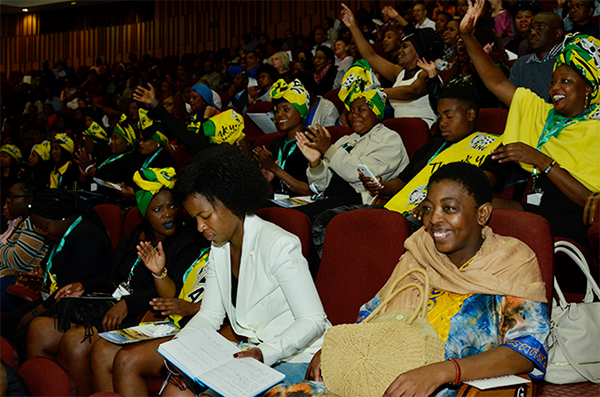
An electric atmosphere filled the ZK Matthews hall
The initiative is one of many projects that supports the institution’s concerted Africanisation and decolonisation efforts. The individuals honoured with the renaming contributed largely to the shaping of the university and society, and reflect the spirit of transformation. The renamed buildings are the Theo van Wijk Building, named after Winnie Madikizela-Mandela, the AJH van der Walt Building named after Prof Nkoana Simon Radipere and the Samuel Pauw Building, which is named after Anton Lembede.
The event was one that will go down in the annals of South African history as unforgettable. The public came in their numbers to witness a turning point in Unisa’s long and illustrious journey.
In his welcome address, Prof Mandla Makhanya, Principal and Vice-Chancellor (VC), said that symbolism is a powerful way of re-writing the skewed representation of our past. "New symbols and names signify both a resolve and intent to right wrongs of the past, and to build a future that embraces and celebrates the rich heritage of our country," he said. "The naming and renaming of any university facility or property is a concrete demonstration of commitment to the university’s vision, mission and values."
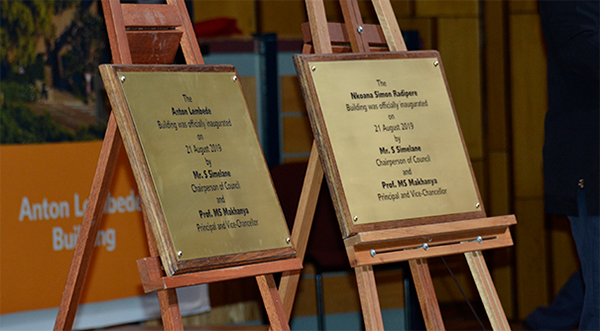
Two of the unveiled plaques for the newly named Anton Lembede and Nkoana Simon Radipere buildings
The VC emphasised that the renaming of buildings is about creating a new institution. "As we celebrate 146 years of the existence of Unisa, we carry with us a mixed legacy of opportunity and exclusion," he said. "Ours is a history of making equal opportunities available for the working people who sought to advance their careers and therefore improve their lives. On the other hand, that very history is not all covered in glory. In fact, many will agree with me that that inside the façade of equal opportunity was an institution that was steeped in colonial privilege."
Sakhi Simelane, Chairperson of Council, concurred with the VC. "Council is deeply committed to the transformation imperative," he said. "Nowhere is this more clearly shown than in the milestones of one of the most iconic and conspicuous representations and embodiment of Unisa’s very identity, or its personhood – its buildings. The process of naming and renaming Unisa facilities is the first critical and formal step of reconstructing Unisa’s identity and has the potential to enhance its ability to achieve its vision, though symbolically. The reconstruction of an identity involves reclamation of our history and rewriting our own stories as Africans and as Unisa – who we are. In justifying the need for Unisa to reclaim the true history, it is important to understand where we come from. We come from a past where our history was defined for us."
Speakers received a warm welcome from guests who filled the ZK Matthews Hall. Songs of jubilation and songs acknowledging struggle stalwart Winnie Madikizela-Mandela erupted and set the house alight as her daughter, Ambassador Zenani Dlamini, took the podium to address the house. "Mama would be beaming with pride," she said. "Like my father, my mom highly valued education and knew of the important role it has in the development of the youth and the country. The renaming of this building today signifies hope and everything Mama stood for and I can tell you, she is finally smiling from heaven. She must be even teasing my father saying, 'Madiba, you see you are not the only one who is recognised'."
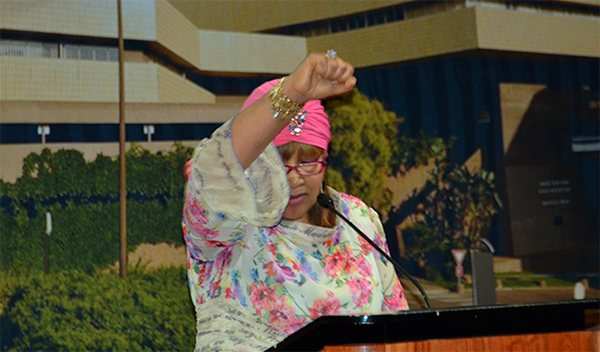
Ambassador Zenani Dlamini chants "Amandla" to close her address
Members of the local, provincial and national government, business community, diplomatic corps, ecclesiastical community and family representatives of the three honoured individuals, among others, were also present to witness the historic renaming. Also present was Bathabile Dlamini, President of the ANC Women’s League, along with a group of women from Madikizela-Mandela’s church. Upon acknowledgement of their presence and in celebration of Women’s Month, the renowned song Igama lamakhosikazi malibongwe erupted, resulting in a standing ovation by the audience.
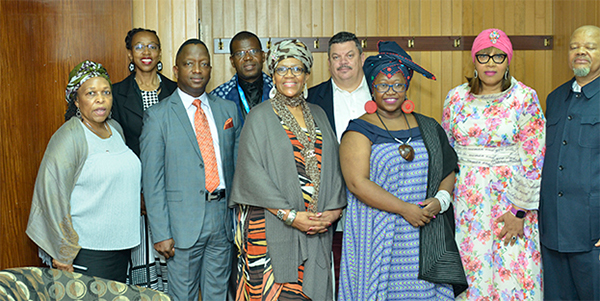
Internal stakeholders, from left: Khanya Mahlare, Executive Director: Department of Institutional Advancement; Dr Marcia Socikwa, Vice-Principal: Operations and Facilities; Dr Phasoane Mokgobu, Chairperson of the Naming and Renaming Committee & Vice-Principal: Institutional Development; Prof Elelwani Farisani, Institutional Forum; Dr Sheila Khumalo, Chairperson of the Unisa Women’s Forum; Johan Jonker, APSA; Tebogo Msabala, NEHAWU; Ambassador Zenani Dlamini; and Prof Mandla Makhanya, Principal and Vice-Chancellor of Unisa.
"This serves as a powerful reminder of the contributions made by these giants in shaping the face of our country," said the VC. "We will continue to derive inspiration from these African greats in pursuit of our vision of becoming the African university shaping futures in the service of humanity."
* By Tshimangadzo Mphaphuli, Senior Journalist, Department of Institutional Advancement
Publish date: 2019-08-22 00:00:00.0
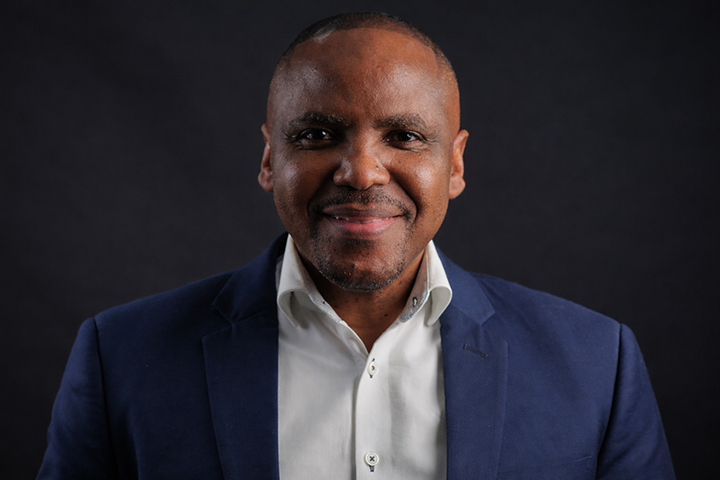 National leader in mathematics education aims to improve outcomes
National leader in mathematics education aims to improve outcomes
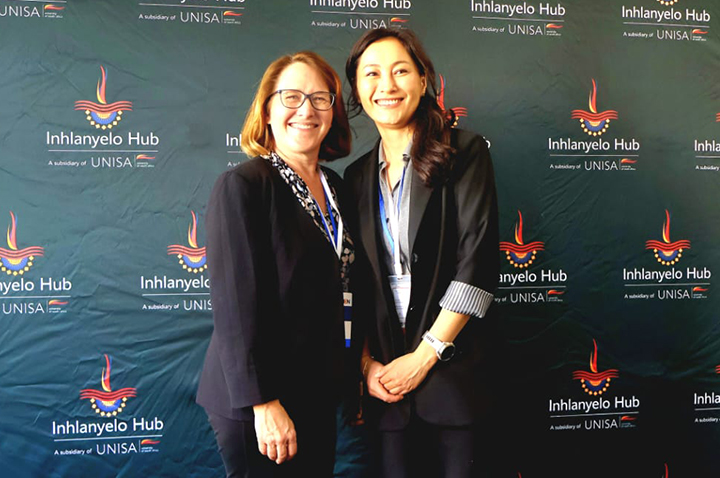 Unisa roundtable focuses on empowering SA women to lead in innovation
Unisa roundtable focuses on empowering SA women to lead in innovation
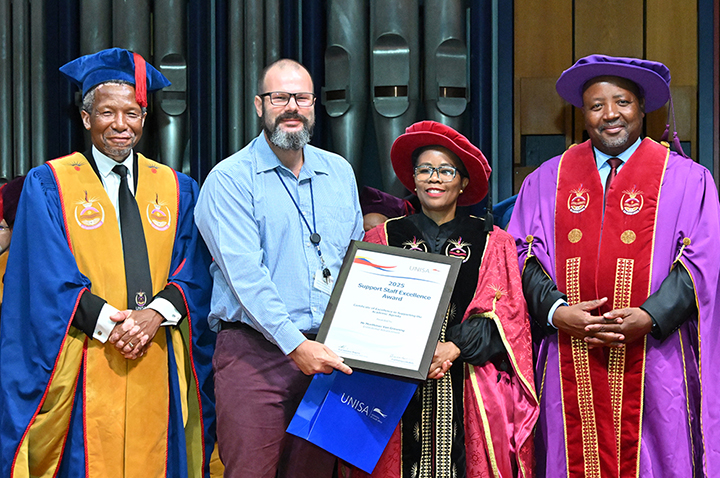 Unisan recognised for web excellence
Unisan recognised for web excellence
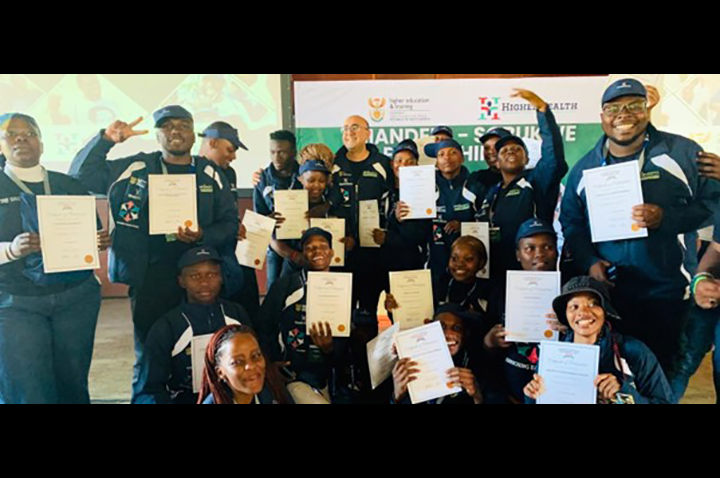 Office of the Dean of Students participates in leadership camp
Office of the Dean of Students participates in leadership camp
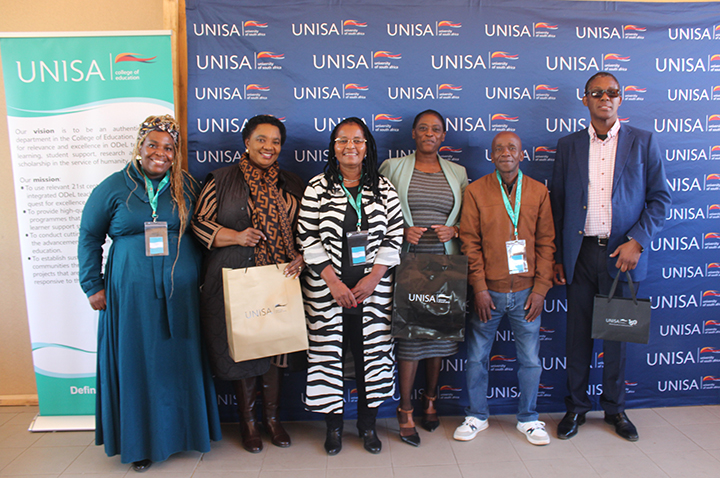 Unisa project fosters digital and pedagogical innovation in Limpopo schools
Unisa project fosters digital and pedagogical innovation in Limpopo schools